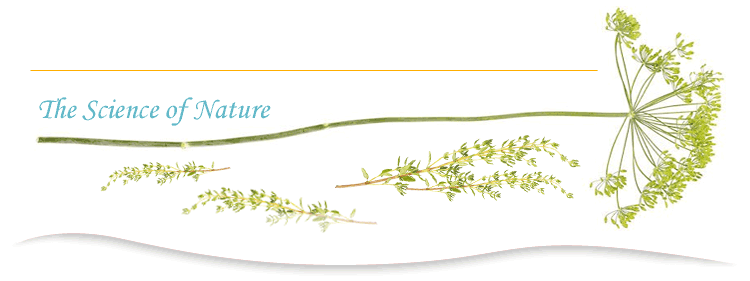

Free radicals and antioxidants
What are free radicals and what is their role in the development of chronic diseases and ageing?
What are antioxidants and how do they protect your body against cancer, chronic diseases and some of the effects of ageing?
What are free radicals and how do they harm the body?
Free radicals are normally produced by our cells. When cells create energy through metabolic reactions and cellular respiration, they also produce unstable oxygen molecules called free radicals. These molecules have a free electron that makes them highly unstable. As a consequence of this unstable state, free radicals bind to other molecules. The effects of free radicals are not all bad. In adequate quantities, free radicals do have a facilitating role in some of the natural functions of the body.
Unfortunately, various environmental factors as well as poor lifestyle choices will lead to the production of excessive amounts of free radicals. Most commonly, free radicals can be produced by:
- Smoking
- Stress
- Sunlight exposure
- Pollution
- Airline travel
- Some medications
- Some foods and food additives
- X-rays
- Strenuous exercise
- Chlorine in water
- Mercury in seafood and dental fillings
When produced in excess, free radicals also react with molecules they are not supposed to react with, causing damage to important molecules and cells. In binding to molecules, they modify them and make enzymes and other essential molecules malfunction. Free radicals can also modify or destroy cells. Over the years, this accumulation of damage accelerates the ageing process and is the cause of many of the manifestations of ageing; it is also thought to be a factor in the development of diseases such as cancer, cardiovascular and heart disease and many other chronic conditions. Naturally, ageing and the development of chronic diseases are multifactorial, and the oxidative action of free radicals constitutes only one part of the equation; however, evidence shows that they do have a significant role to play in this process.
The good news is that there is also evidence that antioxidants can help protect your body and cells from the destructive effect of free radicals.
Antioxidants help protect your body from damage caused by free radicals!
Our body produces enzymes that help neutralize and destroy free radicals. They do so by providing free radicals with extra electrons, thus rendering those free radicals inoffensive. However, in order to function properly, those enzymes require antioxidants, which are not produced by the body. Those antioxidants must therefore be provided in the diet. The main antioxidants are beta-carotene, vitamin C, vitamin E, and selenium. Other known powerful antioxidants called phytochemicals may be found in many plant-derived nutrients.
Antioxidants are found in many fruits and vegetables. Berries are especially rich in antioxidants. Other antioxidants are found in onions, garlic, tomatoes, carrots, cauliflower, broccoli, etc. They are also found in nuts, some oils, beans, etc. Turmeric also contains a powerful antioxidant. Antioxidants can also be obtained from high-quality dietary supplements.
Of note is that some antioxidants will interact together. Some antioxidants will have a protective effect on others or may increase their potential. A balanced diet, consisting of an adequate amount of each food group and including foods rich in various antioxidants, should therefore be an important part of a well-balanced lifestyle.
Supplements can also be a good source of antioxidants. If taken, supplements should also be of high quality and include various types of antioxidants, all combined in the right proportion.
How can I get the right amount of antioxidants I need?
- Eat food with high levels of antioxidants.

In what is considered the largest and most comprehensive analysis to date of the antioxidant content of commonly consumed food, the United States Department of Agriculture (USDA) published a list of various foods with their total antioxidant capacity per serving size. Click here for details.
Here is a list of the top 20; please note that all antioxidants do not have the same effects. It is, therefore, important not only to eat red beans because they are at the top of the list, but to vary your food intake so you get various types of antioxidants as well.
It has been demonstrated that children and adults do not consume adequate amounts of fruits and vegetables. In fact, the lack of adequate fruits and vegetables in the diet has become an important public health issue (reference). This deficiency leads to sub-optimal levels of even basic vitamins, minerals, and other nutrients such as antioxidants. A good multivitamin as well as some antioxidant supplements may help fill the gap (references). That being said, make a judicious use of nutritional supplements and in doubt, always consult your health care provider (please read this important notice):
Rank
____
1
2
3
4
5
6
7
8
9
10
11
12
13
14
15
16
17
18
19
20
Food Item
___________________
Red beans (dried)
Wild blueberry
Red kidney beans (dried)
Pinto beans
Cultivated blueberry
Cranberry
Artichoke (cooked)
Blackberry
Prune
Raspberry
Strawberry
Red Delicious apple
Granny Smith apple
Pecan
Sweet cherry
Black plum
Russet potato (cooked)
Black beans (dried)
Plum
Gala apple
Phytochemical Antioxidant Type
______________________________________
Saponins
Anthocyanins, Ellagic Acid (Phenolic Compound)
Saponins
Saponins
Anthocyanins, Ellagic Acid (Phenolic Compound)
Phenols
Flavonoids, Anthocyanins, Gallic Acid, Luteolin
Anthocyanins, Ellagic Acid (Phenolic Compound)
Fruit
Anthocyanins, Ellagitanin
Anthocyanins, Ellagitanin
Flavonoids
Flavonoids
Proanthocyanidins
Monoterpenes
Phenols
Carotenoids, and Anthocyanins
Isoflavones
Phenols
Flavonoids
Serving Size
_________
Half cup
1 cup
Half cup
Half cup
1 cup
1 cup
1 cup
1 cup
Half cup
1 cup
1 cup
One
One
1 once
1 cup
One
One
Half cup
One
One
Total antioxidant capacity per serving size
13727
13427
13259
11864
9019
8983
7904
7701
7291
6058
5938
5900
5381
5095
4873
4844
4649
4181
4118
3903
This stunning bestseller, from Richard Béliveau, professor at the Faculty of Medicine of the University of Montreal and a leading figure in cancer prevention and treatment, is a must-read for anyone wishing to improve their health.
Related pages on this site:
- Antioxidant vitamins and phytochemicals in: Most commonly used supplements, their nature, functions and roles.
Scientific References:
I want to learn more
- Make a judicious use of nutritional supplements